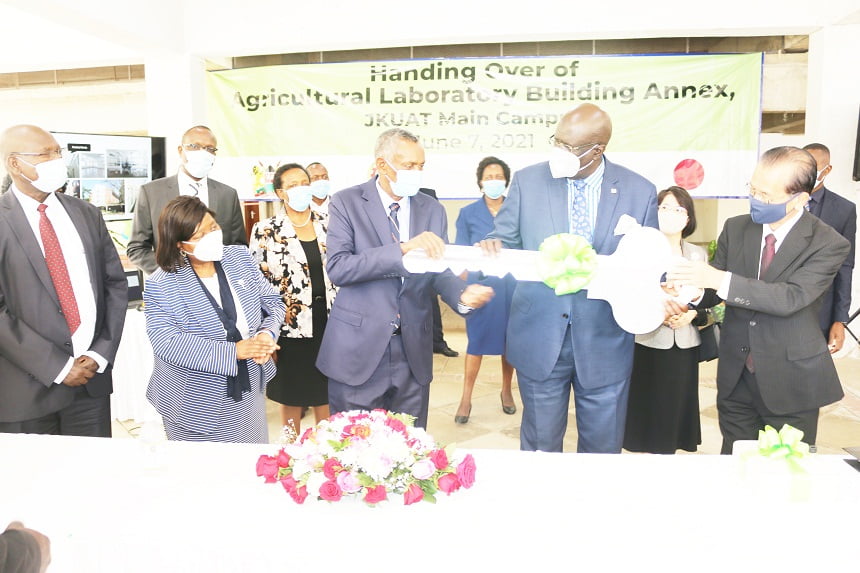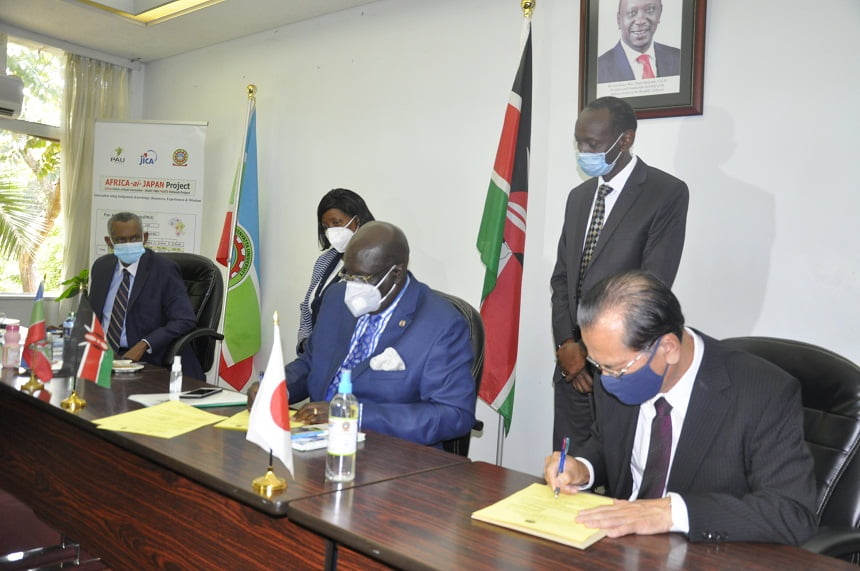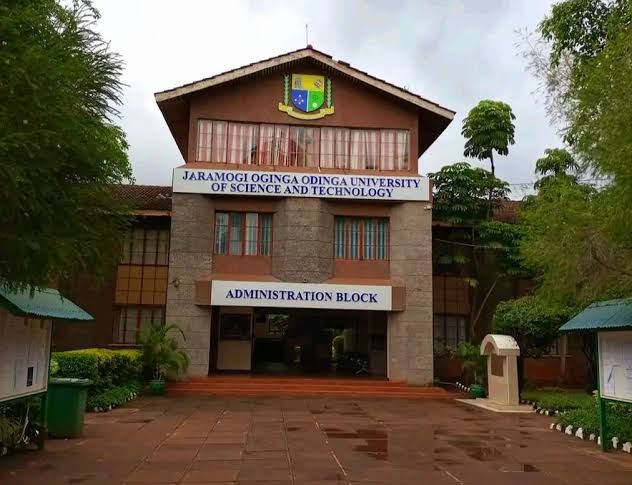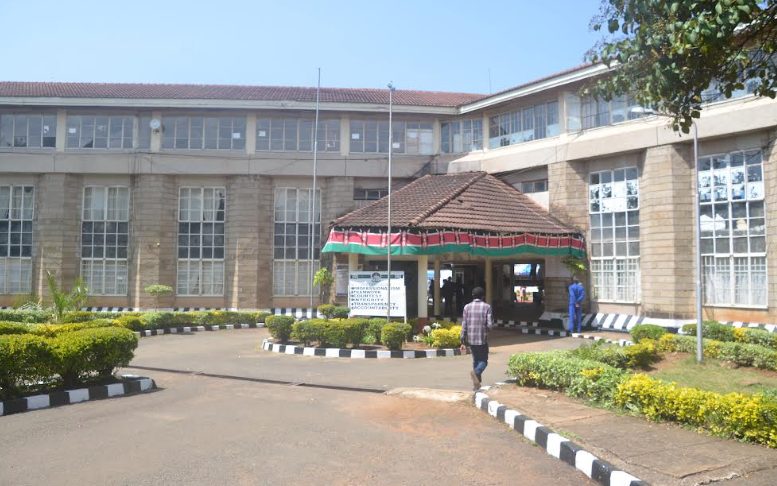By Patrick Amunavi
Education Cabinet Secretary Prof. George Magoha has asked universities in Kenya to remain focused on their traditional core areas of strength.
Citing the example of Jomo Kenyatta University of Agriculture and Technology (JKUAT), the Cabinet Secretary said: “No one can deny the fact that JKUAT is a very strong university when it comes to science and technology.”
He encouraged the university to strengthen itself along those fronts rather than digressing to the humanities and arts.
Magoha decried that most Kenyan universities have over the recent years abandoned concentrating on their strong fields of research and training and instead deviated to all manner of programmes.
He called on all institutions of higher learning to desist from the negative trend of duplicating programmes offered in other universities and instead strengthen traditional programmes.
Prof. Magoha was speaking at JKUAT main campus on June 7, 2021 where together with the Japanese Ambassador to Kenya, Mr. Ryochi Horie, they presided over the official inauguration of the newly constructed multimillion state-of-the-art Agriculture Laboratory Building (ALB).
It was constructed by the Japanese Government through the Japanese International Corporation Agency (JICA).
The Cabinet Secretary, on behalf of the Kenyan Government appreciated the support of Japanese Government through JICA for the good work whose impact he said is evident at JKUAT and across the country.
He lauded JKUAT for being a “Beacon of technology transfer and innovation in Kenya and advised institutionsof higher learning to step up collaborations with other world class universities, including those of Japan.
“As a ministry, we are proud of the fact that most of the top scientists at JKUAT are alumni of Japanese universities,” he said.
Ambassador, Ryoichi Horie expressed his gratitude to all the stakeholders involved in the completion and renovation of the building which has been carried out under the Africa –ai-Japan project.
He said Japan has developed very cordial relationship with JKUAT since 1981 and paid tribute to all professionals and academics from both Japan and Kenya for the efforts that have earned the university its current reputation.
He reiterated that “Japan has not only cooperated with JKUAT for development of human resource but also for growth of agricultural sector in the country. “
Horie observed that agriculture is essential for recovery of the entire economy of the country whose growth is affected by Covid 19 pandemic.
The University Council chairman Amb. Maalim Mahboub appreciated the collaborative efforts of Kenya and Japan through the Ministry of Education and JICA for the implementation of the Africa-ai- Japan projects at JKUAT.
JKUAT Vice Chancellor, Prof Victoria Wambui Ngumi reported that 37 research innovation projects funded by JICA include a long term multi-disciplinary and inter-departmental projects, 26 senior researcher’s projects supporting JKUAT/PAUSTI students and eight post-doctorate support.
Other are two Covid-19 emergency fund projects, in addition to 72 other projects supported through seed funding for PAUSTI students, which she stated is an important catalyst and synergy required to make JKUAT a regional hub in research for development.
Besides research, the Vice Chancellor also said JICA’s support in procurement and installation of Wi-Fi connection infrastructure in JKUAT enabled the university to rank top amongst all Kenyan Universities in terms of “Usage of the KENET Remote Teaching Platform.”
JKUAT students are now able to attend classes regardless of their proximity to the Main Campus, thus reducing congestion in lecture halls while observing other Public Health Guidelines as provide by the Government of Kenya.







